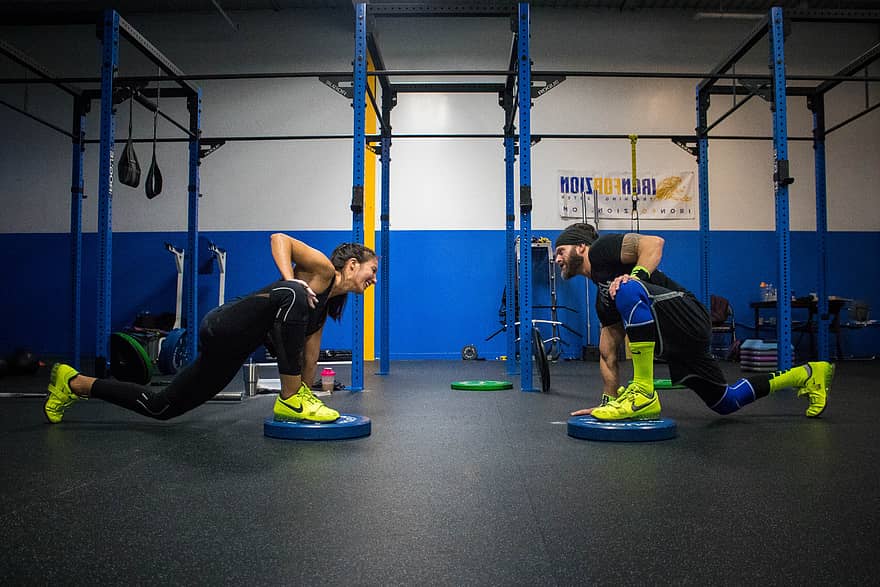
What is the relationship between weight loss and calcium intake? And how is it recommended to consume calcium on a training day?

When it comes to exercise, we all have goals in mind, whether it's shedding pounds, improving our fitness levels, or simply enjoying our favorite sports activities. However, to achieve these goals, it's crucial to prioritize the health and strength of our bones and muscles. After all, nobody wants to be sidelined by unnecessary injuries or hindered by poor recovery. That's where rest, nutrition, and sleep come into play, and an often overlooked element in this equation is calcium.
Calcium, an unsung hero in the realm of rest and recovery, plays a vital role in the proper functioning various systems within our cells. Most people know its importance in maintaining strong bones, but did you know calcium is also essential for the heart muscle and the transmission of neural signals for muscle contraction?
So, what's the connection between the weight loss process and injuries? And how should calcium consumption be approached on training days?
Aerobics and Calcium: Are You Getting Enough?
Low calcium levels can lead to muscle cramps, especially in the back and legs, which directly affects our ability to engage in aerobic activities like running or walking long distances. Inadequate calcium levels can also impact physical sensations during athletic training, ultimately sapping our endurance. Moreover, calcium is essential for fortifying bones after intense workouts or lengthy aerobic sessions. Since calcium is a major component of bones, insufficient intake increases the risk of bone damage, injuries, and stress fractures among exercise enthusiasts.
The Sweaty Connection: Calcium and Aerobic Exercise
Sweating is an inevitable part of any intense workout. While many may not enjoy the feeling, sweating brings a sense of accomplishment and helps cool the body while eliminating toxins. However, sweating also results in calcium secretion from the body for those engaging in aerobic activities. Calcium loss can lead to decreased bone density, raising the risk of various problems, including fractures and even early-onset osteoporosis. Since aerobic training induces substantial sweating, it's crucial to be mindful of the increased calcium requirements and consider calcium supplementation.

Strength Training: Unleash the Power of Calcium
Recent studies suggest that calcium intake during exercise could be the most effective way to prevent calcium loss and enhance recovery. Just like in aerobic exercise, calcium is lost through sweat in strength training. A study conducted on this subject divided participants into two groups: one group took calcium and vitamin D pills before training, while the other group did not take any calcium at all. After the workout, blood tests revealed that the calcium levels were higher in the group that had taken calcium and vitamin D supplements. Although this study focused solely on men, researchers have praised calcium-rich foods like sports snacks for aiding muscle recovery after intense training.
Meeting Your Calcium Needs During Exercise
Studies indicate that individuals engaged in intensive exercise should aim for a daily calcium intake of 1,600-1,000 mg to ensure adequate availability for bone density maintenance and development. Since significant amounts of calcium are excreted through sweat during intense training, it is recommended to supplement with an additional 200 mg of calcium for every hour of training. Achieving these levels through diet alone can be challenging due to various competing factors within the body, making a quality calcium supplement an increasingly popular choice among athletes and fitness enthusiasts.
Recognizing Calcium Deficiency: Signs to Watch Out For
Athletes and trainees must be mindful of the early signs of calcium deficiency, such as muscle aches, cramps, and spasms. Many individuals experience knee and arm pain, particularly during walking or aerobic exercises. Unlike other pains that subside with warm-up and activity, these symptoms persist, making it difficult to maintain regular exercise routines. Other indicators of calcium deficiency include fatigue and a lack of energy, which can significantly impact training performance.
In Conclusion
Paying attention to calcium intake is crucial if you're striving to achieve your fitness goals. Calcium plays a pivotal role in rest and recovery, ensuring strong bones, preventing injuries, and supporting muscle function. Whether you're engaged in aerobic or strength training, or focused on weight loss, prioritizing calcium consumption will help unleash your fitness potential. So, ensure you're giving your body the calcium it needs to thrive and propel you toward your exercise aspirations.
The normal calcium range for adults is 10.4-8.6 milligrams per decilitre. In cases of calcium deficiency, it is possible that the appropriate success for you will be taken before and after training pHsport The unique and innovative calcium supplement comes in powder form, is convenient and light can be put in the pocket and go out to the gym. Its advantages are manifested in a level of absorption 2 times higher and even more crystalline calcium carbonate, and in a higher level of availability and activity for the body and the bones.







